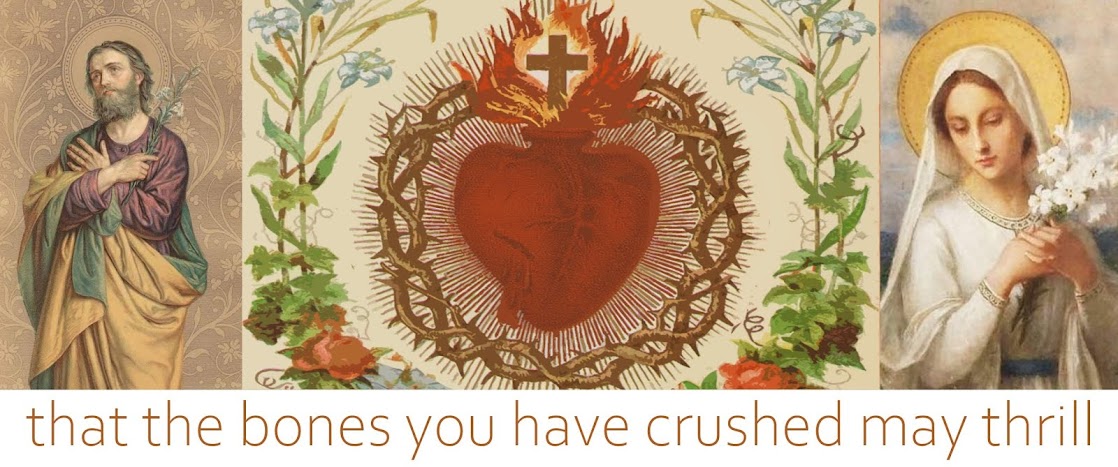
This evening, I attended a lecture by a monk from the World's oldest monastery, here in Brighton. Fr Justin, librarian at St Catherine's Monastery, Mount Sinai, Egypt gave a talk on the Sinai Illuminated Manuscript of the Heavenly Ladder by St John Climacus, at St Michael's & All Angels, Brighton. The Monastery houses more than 4,500 ancient manuscripts and tens of thousands of fragments from others. I'm one of those chaps near the bottom of the ladder falling off frequently. Thank God for Confession!
The talk was fascinating. St John Climacus wrote a spiritual treatise on a 30-step ladder to Divine union, called 'The Ladder of Divine Ascent', which reminded me of the works of other great mystics such as St John of the Cross and St Teresa of Avila. It was interesting to think that the monastery at Mount Sinai, until very relatively recently really was in the wilderness, but of course is now a tourist destination. Those who wished to escape the World are now immersed back in it!
The Holy Father recently held up St. John Climacus as a reminder of the need for “continual conversion and purification with the help of the Holy Spirit. Speaking to 8,000 people in Paul VI Hall, the Pope, in February explained that in the first part of “Ladder of Paradise,” St. John Climacus describes a “break with the world in order to go back to a true evangelical infancy, the time of childhood, in accordance with Jesus’ words.” John Climacus teaches that innocence, fasting and chastity are the “pillars” of this journey, the Pope said.
Every “newborn in Christ,” Pope Benedict continued, “learns from these things, which allow the soul to enter in communion with God.” “Blessed be those who mortify their will till the end,” John Climacus said, for they “shall be placed on the right of Christ. The rung of St. John’s ladder is the “spiritual struggle against passions.” St John Climacus saw passions not as “bad in and of themselves,” but taught that they “become so when they are put to bad use by man’s freedom.” In fact, the Pope said summarizing the saint’s teaching, “If the passions are purified they open onto the path that leads to God.”
“The struggle against passions becomes positive thanks to the image of the fire of the Holy Spirit, whose strength ensures victory over passions, transforming them by the Creator’s positive nature,” John Climacus adds. “The fire of the Holy Spirit is the fire of love and truth.”
The third step on the ascent to Paradise that John Climacus describes, deals with “Christian perfection,” the higher levels of which “can be experienced by those who have reached peace of mind and inner peace.”
John Climacus emphasizes the importance of discernment: Christians must examine every aspect of their behavior in order to ascertain their deepest motivations and reawaken a "sense of the heart." This leads to tranquility of soul, “esichía,” which prepares Christians to probe the depths of the divine mysteries, the Pontiff explained.
The final part of the saint’s “ladder” is dedicated to faith, hope and charity. John Climacus speaks of charity as Eros, “the figure of the soul’s matrimonial love for God.” An intense experience of this Eros, the Holy Father related, makes the soul progress more than any hard-fought struggle with its passions. This positive character counts more than the struggle itself.
St. John Climacus writes, “Hope is charity’s strength.” In its absence charity is obliterated. Hope surrounds one with God’s mercy. "How topical is the opus of a hermit monk from 1,500 years ago?” the Pope asked. “At first glance, we would say no, but if we look closely at monastic life we see that it is a great sign of Christian life. It shows in capital letters what we write daily in small letters; it shows how a baptized person can live in communion with Christ, his death and resurrection.”
Pope Benedict mentioned how this is demonstrated in relation to one’s ego. “I give up my arrogance, for which I too must judge for I cannot rely on others.” It is a question “of overcoming the arrogance of saying ‘I know best.’” In this manner, the soul grows. “Only hope can make us capable of charity. With hope we can transcend everyday reality,” the Pontiff stated. “We don’t have to wait for success every day but for God himself in the end…We can be good with others without expecting a reward. The mystery of prayer, the personal knowledge of God, hides in charity,” Benedict XVI shared as he concluded with the prayer: Let us use the ladder of faith, hope and charity to reach true life.”




No comments:
Post a Comment